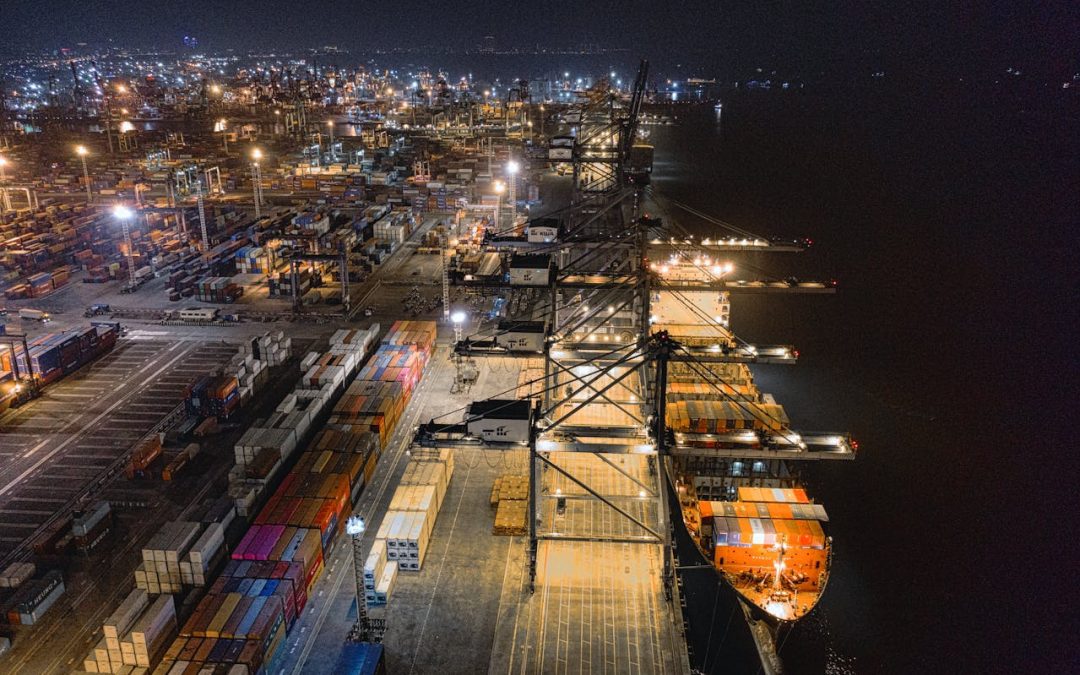Picture the scene. You’re on the M25 somewhere near London. You decide to pass the vehicle in front, and as you do so, you notice that there is no driver!
While we’re a way off driverless trucks, it isn’t a wildly futuristic concept. With self-driving cars already in use, albeit without full driverless capabilities, it won’t be too long before we start to see automated vehicles on our roads.
And when they do arrive, they’re going to change freight as we know it. Let’s take a look into the future…
Autonomous Vehicles: A Brief Overview
Before we look forward, let’s take stock of where we are right now with the technology.
Autonomous vehicles, often referred to as self-driving cars, are vehicles that utilise advanced sensors, artificial intelligence and innovative software to navigate without human input. These systems process huge amounts of data from special tech like cameras and radar to make real-time driving decisions; steering, braking and speed control are all taken on without any need for a person present.
Self-driving vehicles have varying levels of autonomy, ranging from driver assistance to fully autonomous driving. This spectrum of automation is defined by the SAE, or Society of Automotive Engineers, and stretches from Level 0 (no automation) to Level 5 (full automation). At the lower end of the spectrum, human drivers retain significant control through features like lane-keeping assistance. At the higher levels, the vehicle takes control of all driving activities.
It might sound exciting, but autonomous vehicles aren’t legal on UK roads just yet. However, the UK government has prepped the ground for the future of this technology with a recent bill, paving the way for self-driving vehicles to be legal in the country by 2026.
The Current State Of Autonomous Vehicles In Freight
Autonomous vehicles, or AVs, are very much in the testing phase for the world of freight, with trials taking place in controlled environments. Oxbotica are one company pioneering the development of the technology by testing AVs in settings such as mines; these controlled environments provide the perfect conditions to see how self-driving vehicles cope whilst maintaining high safety levels.
Transitioning to AVs in freight will be a gradual process. The UK government is in the early stages of developing regulations and legislation to support the fully safe integration of autonomous vehicles on public roads, and as they delve deeper, they will require collaboration between tech developers, lawmakers, and infrastructure planners to address the many challenges.
Though fully autonomous vehicles are not yet cleared for use in the UK, certain levels of automation are already being used in freight throughout the country and beyond. Ocado, the UK’s biggest online-only supermarket, utilises highly automated warehouses where swarms of robots work efficiently to fulfil customer orders. Automation used in this way boosts efficiency, reduces human error and improves productivity throughout the supply chain.
Another company, Starship Technologies, have made significant progress in developing autonomous delivery robots. These robots are already in use in a select few UK cities delivering weekly food shops and smaller parcels!

What Are The Potential Benefits Of AVs?
AVs offer several potential advantages that could transform travel and freight as we know it.
Improved Safety
Through reduced human error, self-driving vehicles could vastly improve road safety.
AVs don’t get droopy, tired eyes or distracted by something by the side of the road. They can maintain full focus on the road throughout a journey, potentially reducing the number of road traffic accidents.
24/7 Operation And Cost Efficiency
AVs don’t get tired, and that means they don’t need to stop for a rest. On the move 24/7, 365 days a year, AVs have the potential to greatly increase delivery speed for more efficient shipments. With optimised routes thanks to real-time AI data, businesses could potentially save both time and money, lowering operational costs.
Lower Emissions and Fuel Efficiency
Utilising optimised routes as well as being programmed to drive in the most fuel-efficient way means self-driving vehicles eat up much less fuel, emit lower carbon levels and contribute to a greener freight sector.
Addressing Driver Shortages
The shortage of truck drivers in the logistics sector is a growing problem. But hang on, with AVs, this is suddenly a non-issue!
By automating long-distance driving, AVs can efficiently fill the shoes of those missing drivers. These self-driving vehicles will still require trained employees to manage and monitor their operations, and this will create plenty of fresh job opportunities in both the logistics and tech industries.
What Are The Challenges On The Road To Adoption?
The main blocker to AV adoption is that the technology is simply not ready yet. There are many technical challenges to overcome before we see AV integration in this country, such as navigating complex urban environments or handling adverse weather conditions.
And you know what? We’re not ready yet either! Our towns and cities need work to make sure the infrastructure and communication networks are ready to support the widespread adoption of autonomous vehicles. Not only that, but legislation developments are important, too, because safety is paramount.
As the AV industry develops, it will need to build trust with professionals and the general public alike. There have been some tragic stories involving automated driving already, so open communication, trust-building and holding safety at the forefront is crucial.
Another hurdle is fear. Will the tech steal our jobs? We need drivers, it’s true, but the adoption of fully autonomous vehicles can ring alarm bells for those on the job already… Will they still be needed at all? Thought needs to be given to how things will change and what that means for the humans involved who need to earn a wage.

Automated Freight Deliveries… It’s Happening
While we’re not going to see driverless vehicles just yet, they’re coming. And not in the too-distant future.
The introduction of AVs to the world as we know it will mark a huge change for everyone in the automotive world, and Millennium are truly excited to see what it might do for us here in the freight sector.
We’re not robots, but we’re extremely efficient! Get in touch with Millennium today to find out how we can help with your shipping activities.

